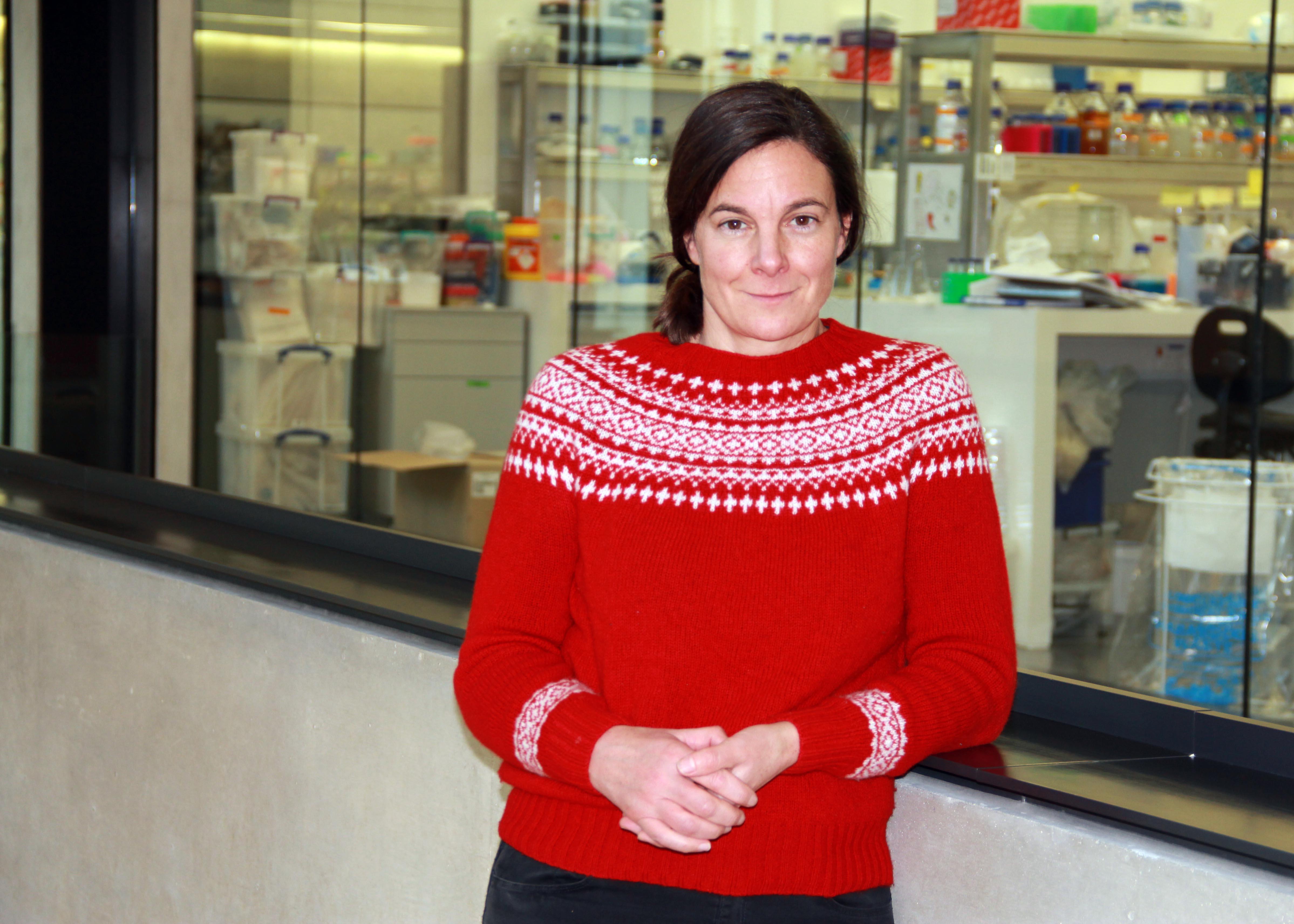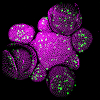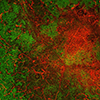
Katharina Schiessl will head a new research group at the Sainsbury Laboratory Cambridge University (SLCU) focused on understanding how organ diversity of plants can be reshaped by their colonisers.
Dr Schiessl’s research, combines developmental genetics, quantitative deep tissue imaging and genome-scale profiling approaches. She aims to understand how plant colonisers can recruit and modify host developmental pathways to generate plant organs of novel form and function for their own purposes.
Dr Schiessl, most recently a research associate at SLCU, has been working with Professor Giles Oldroyd on the Enabling Nutrient Symbioses in Agriculture (ENSA) project funded by the Bill and Melinda Gates Foundation. She has been investigating how the root nodule, an organ that accommodates symbiotic bacteria and provides an environment conducive to biological nitrogen fixation, has evolved in legumes and what gene regulatory networks underlie nodule organ identity.
During this research, Dr Schiessl developed organ induction and deep tissue imaging techniques in the model legume Medicago truncatula. This enabled comparative studies of the early developmental processes in lateral roots and symbiotic nodules with unprecedented spatial and temporal resolution. These techniques led to the finding that the initiation of lateral roots and nodules emerge from a common developmental programme, providing the first genetic evidence for the long-standing notion in the symbiosis field that symbiotic root nodules are modified lateral roots.
In her most recent work, she found that to differentiate symbiotic root nodules from lateral roots, a developmental program with pleiotropic functions in the shoot is recruited, demonstrating that modification of pre-existing developmental pathways can generate a novel plant organ.
These key findings on the developmental pathways of symbiotic nodule development build a fantastic framework that she will continue to explore and dissect in greater detail as a David Sainsbury Career Development Fellow.
Dr Schiessl said: "I am very excited to start my independent research group focused on understanding how plant colonisers generate plant organ diversity in the inspiring and supportive environment of SLCU.
“The dynamic program underlying the induction and differentiation of the symbiotic root nodule such that these purpose-built plant organs can host thousands and thousands of nitrogen-fixing bacteria fascinates me every single day.
“Among coloniser induced organs, symbiotic root nodules are rather the exception as legumes made genetic changes to accommodate the beneficial bacteria.
“I am even more intrigued that parasitic colonisers such as root-knot nematodes have evolved the ability to recruit and manipulate pre-existing plant developmental pathways to generate plant structure and organs for their more nefarious purposes. These are commonly referred to as plant galls.
“Often odd-looking with extraordinary features, plant galls have sparked the imagination of humankind throughout history. Their diversity stops us in our tracks and make us wonder what nature is capable of. I am particularly excited to expand my research programme to comparatively study the cellular and molecular mechanisms that underlie parasitic and symbiotic coloniser-induced plant organs.”
SLCU Director Profesor Henrik Jönsson said: ‘We are very excited to welcome Katharina Schiessl as a DSCDF at SLCU. She has proven a great ability to decipher complicated regulation in nodule development and we expect the SLCU environment will help her build up her own research group and further develop her scientific ideas."
Read more about Dr Schiessl's research programme:




